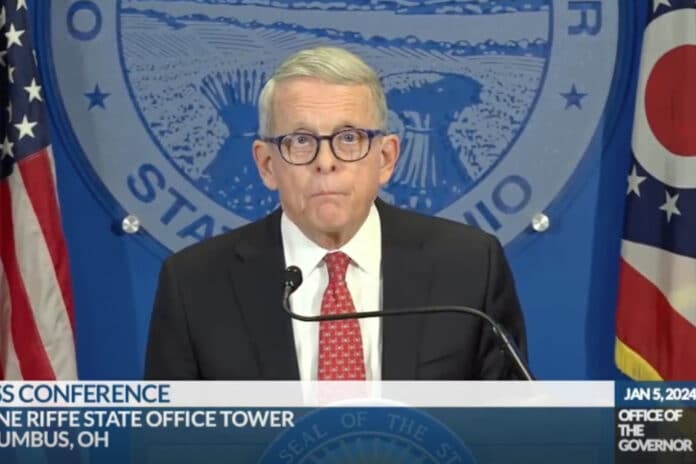
(Daily Caller News Foundation) — Republican Gov. Mike DeWine of Ohio announced on Friday that he was signing an executive order to ban sex- change surgeries for minors a week after vetoing a similar bill.
![]()
DeWine was widely criticized for vetoing a bill just hours before the deadline in December that banned puberty blockers and cross-sex hormones as well as sex-change surgeries. DeWine reiterated during a press conference Friday that he believed parents should be the ones making the decisions for their children but said that he signed an executive order banning transition surgeries for minors in Ohio.
“This ban is effective immediately. Ohio law allows for emergency rules, so that provision is important to public safety and other important public policy goals specified in the statute,” DeWine said. “This will ensure that surgeries of this type on minors can never happen in Ohio. I know that’s one of the concerns that has been expressed. I’ve never disagreed with that.” The executive order does not ban minors from receiving puberty blockers or cross-sex hormones.
The bill package that the governor vetoed also would have banned male athletes from competing in women’s sports, which DeWine has said in the past that he is not in favor of. DeWine said during the press conference that he isn’t sure whether or not the executive order will be enough to prevent the legislature from overturning his veto.
DeWine also received $40,000 in donations from 2018 to 2023 from Ohio children’s hospitals, which openly support transgender medical treatments for minors. The donations were made to Mike DeWine and Jon Husted Transition Fund, which allows candidates to spend donations for “transition activities and inaugural celebrations,” according to Ohio’s campaign finance handbook.
DeWine also announced that the state’s Department of Health and the Department of Mental Health and Addiction Services will be proposing rules that will “provide protection for children and adults.” The governor explained that these new rules, if adopted, would require any individual considering transgender treatments to consult with a team consisting of, but not limited to, an endocrinologist, a bioethicist and a psychiatrist.
He also said that patients would have to undergo “comprehensive and lengthy counseling” as well as be informed of the risks associated with transgender treatments.
“It’s clear that the most important part is the mental health counseling,” DeWine said. “It needs to be lengthy and it needs to be comprehensive.”















